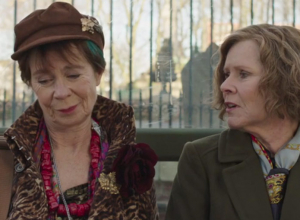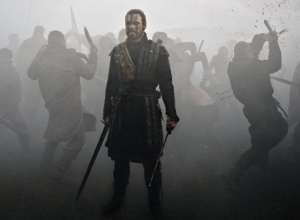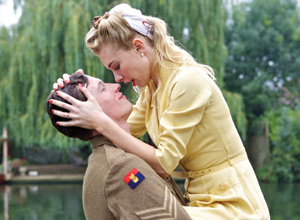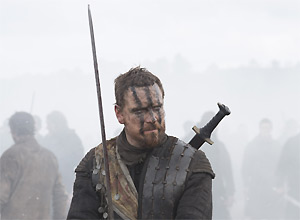Shakespeare's Scottish play returns to the big screen with earthy energy, visual style and roaring performances. Acclaimed Australian filmmaker Justin Kurzel (Snowtown) takes an artistic approach that makes terrific use of sweeping landscapes and harsh weather, which allows the cast to put their guts into their roles. Yet while the film looks absolutely amazing, the sound mix is so muddled that anyone unfamiliar with the play will find it difficult to follow.

Michael Fassbender plays Macbeth, an 11th century general who has just triumphed on the Highland battlefield but is struggling internally after he and Lady Macbeth (Marion Cotillard) lost their infant child. So when three witches tell him that he is destined to become king, his wife encourages him to make it happen sooner rather than later. In secret, Macbeth murders King Duncan (David Thewlis) and pins the blame on his son Malcolm (Jack Reynor), who flees in fear, raising suspicion. Now on the throne, King and Queen Macbeth are overwhelmed by paranoia about any hint of a threat to their power, raising distrust of loyal friends like Banquo (Paddy Considine) and Duncan's defender Macduff (Sean Harris). Meanwhile, Malcolm has raised an army in England and is coming back to claim his title.
This is one of Shakespeare's bleakest, leanest plays, and Kurzel gives it an intriguingly expansive tone by setting most of the action outdoors in the elements rather than in shadowy castle corridors. In addition to adding a gritty, muddy kick, this allows the battle sequences to take on a Lord of the Rings-scale intensity. So the effect of this violence on the characters is that much more resonant. Lady Macbeth turns inward, tormenting herself in an extended dream sequence, while Macbeth goes the other way, killing anyone who seems even remotely shifty. But of course they also understand that their ambition and guilt are causing these extreme reactions.
Continue reading: Macbeth Review

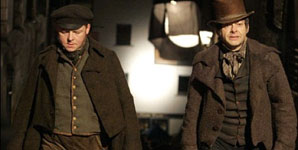
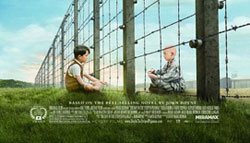

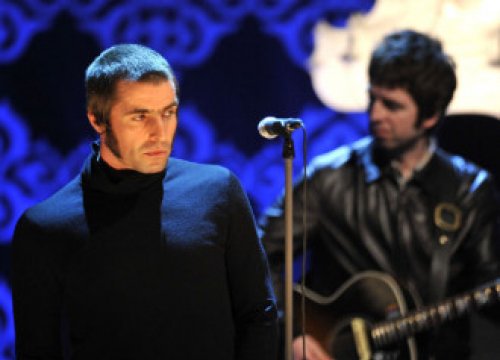



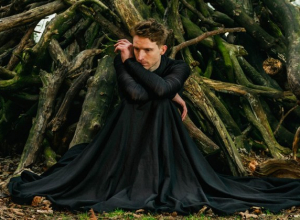

![Luke De-Sciscio talks to us about having the courage to be yourself, forgiving that which is outside of one's control and following whims [EXCLUSIVE] Luke De-Sciscio talks to us about having the courage to be yourself, forgiving that which is outside of one's control and following whims [EXCLUSIVE]](https://images.contactmusic.com/images/home/homepage/luke-de-sciscio-abof-a.jpg)
